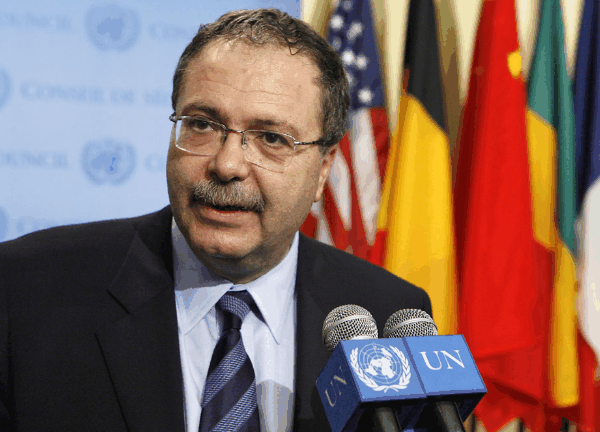By Randa Takieddine, translated for Al-Monitor. Any opinions expressed are those of the author, and do not necessarily reflect the views of Libya Business News.
Dr. Tarek Mitri (pictured), former UN special envoy to Libya, expressed deep concern about Libya’s future and renewed his call for the disputing parties to dialogue and agree on the priority of rebuilding the state and its institutions.
In an interview with Al-Hayat in Paris, Mitri said that stopping external interference and putting pressure on local parties could put Libya on the way to a solution. He described the status quo as civil war, where there is a legitimate parliament facing militias that control the ground, resulting in two governments, one having legitimacy and another having strength. The following is the text of the interview:
Al-Hayat: There is a prevailing impression in the international community that Libya is going toward more chaos. What is your outlook for this country’s future?
Mitri: Let me start with the international community. There is a mixture of attitudes. Some are truly interested in helping Libya, but do not know how to provide real support for this country. Others are hesitant, sometimes suggesting that Libya is important for them and other times not paying attention to it.
Overall, there is a feeling of helplessness caused by an unwillingness for military intervention in any way. The military intervention that took place in 2011 will of course not be repeated, in my opinion. In the absence of a clear political will, a desire to address Libya’s problems and the ability to address them, the only thing the international community believes will avoid a slide toward total chaos, or what might be called a civil war, is dialogue. Now everybody is saying, let the Libyans talk and agree and we will support them, and let the political process resume after agreeing on the priorities of national construction.
Unfortunately, Libya has been a country of missed opportunities. Today they are talking about dialogue, and everyone sees no way out of the current impasse except through [dialogue]. Three months ago, in June, I almost saw with my own eyes that there will be a confrontation between the two major alliances in Libya: the alliance of Misrata and Islamists, and the other alliance, which includes various groups, so-called ‘nationalist non-Islamists’ or even anti-Islamist.
In June, I saw that things would soon deteriorate and that we were moving toward armed confrontation. I invited the parties to dialogue. My call was thwarted because some believed that Libya could be ruled with one side defeating the other, even if the winners were based on a majority vote.
It is true that the non-Islamist team won the election and received a much larger majority than some had predicted, but in a country with so much diversity, so many weapons and all these contradictions and external interventions, especially Arab — there are, of course international interventions but they are not significant or influential — dialogue was necessary. Some thought, however, that the electoral victory made [dialogue] unnecessary. Consequently, events ensued, and now everybody find themselves in need [of dialogue].





